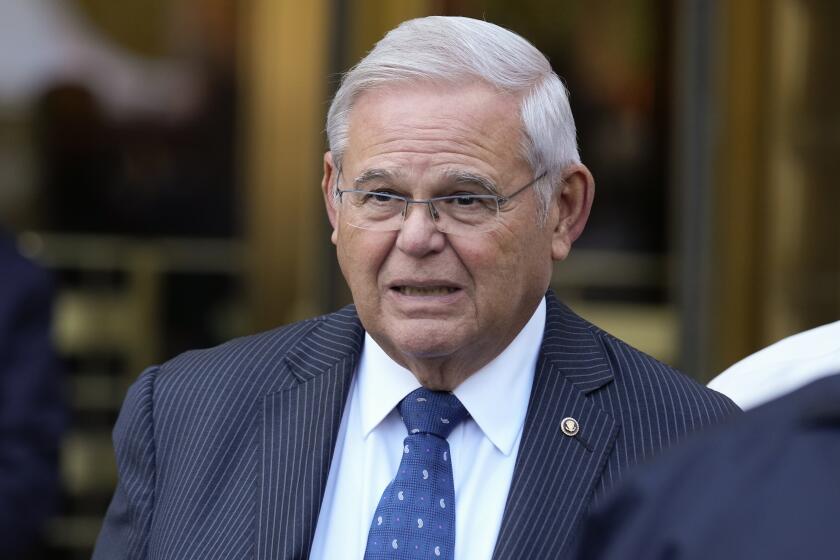Truck Safety Oversight Plan Hits Dead End
GOP congressional leaders yielded to trucking industry lobbyists and killed a plan that would have strengthened oversight of truck safety, a Republican lawmaker charged Wednesday.
The provision, which was dropped from the omnibus appropriations measure signed into law Wednesday, would have moved truck inspections from a road-building agency to a traffic safety agency.
“I believe safety will be diminished and lives will be lost” because the provision was dropped, said its author, Rep. Frank R. Wolf (R-Va.), chairman of the House Appropriations transportation subcommittee.
Aides to Wolf said House Speaker Newt Gingrich (R-Ga.) and Senate Majority Leader Trent Lott (R-Miss.) made the decision at the request of the trucking industry. A spokesman for Gingrich was not available for comment.
While the number of people killed on the roads fell between 1996 and 1997, fatalities in crashes involving large trucks increased 4% to 5,355, the highest toll in the 1990s. The overwhelming majority of the victims were in cars that collided with trucks.
In California, truck fatalities also increased in 1997, the latest year for which data are available. A total of 409 people were killed in truck accidents in the state, compared with 390 in 1996.
One in five trucks is estimated to be operating with safety violations so serious that the vehicles should not be on the road. Industry critics have charged that truckers often ignore federal limits on the number of hours they can drive without rest.
Wolf’s provision, backed by auto insurers and consumer groups, would have moved responsibility for truck safety from the Federal Highway Administration to the National Highway Traffic Safety Administration. Wolf said the truck safety office, known as the Office of Motor Carriers, has been a bureaucratic stepchild in the highway administration.
The issue is an example of how legislation dealing with obscure and seemingly bureaucratic matters can have critical consequences for industry and consumers. It also shows how nothing is settled in Washington until a final vote is taken.
At a news conference, Wolf released parts of a letter from an anonymous federal truck safety official, complaining that the highway agency is doing a poor job. The official said the average inspector now examines one trucking company a month, down from five a month two years ago. Federal inspectors work with state counterparts and police to enforce national standards.
“Clearly, nobody at the top [in the highway administration] recognizes the importance of compliance and enforcement,” the anonymous official wrote. “[Investigations] save lives. Why aren’t we doing enough of these?”
Wolf’s aides said the agency has been putting fewer resources into enforcement, focusing instead on public education campaigns and cooperation with the industry. The total number of inspections is down from 18,000 in 1990 to 4,200 last year.
The traffic safety agency now sets standards for new trucks, while the highway administration oversees the safety of trucks and drivers on the road. Insurers and consumer groups say that has led to a “split personality” on safety issues that would be remedied by making trucks the responsibility of the safety agency.
“The logic of such a move is unassailable,” said Brian O’Neill, who heads the Insurance Institute for Highway Safety. “It has never made sense to separate this one vehicle safety office from NHTSA.”
David Barnes, a spokesman for the American Trucking Assns., disagreed.
More to Read
Start your day right
Sign up for Essential California for news, features and recommendations from the L.A. Times and beyond in your inbox six days a week.
You may occasionally receive promotional content from the Los Angeles Times.






